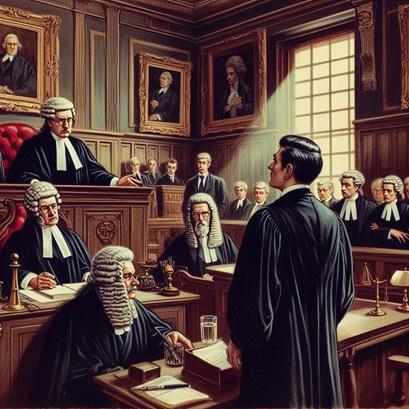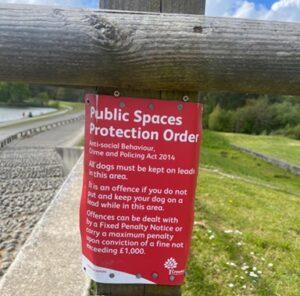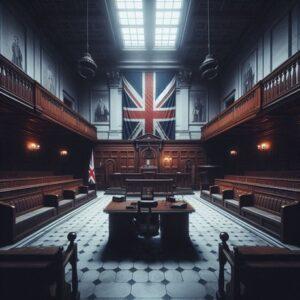Adverse inference is a legal principle that plays a significant role in various areas of law, including criminal, civil, and family law. It arises when a party remains silent or withholds evidence, leading the court to draw a negative inference.
The CPS publish important guidance on the law and practice surrounding adverse inferences from a Defendant’s silence in certain circumstances. To avoid the drawing of an adverse inference, some Defendants will read out a pre-prepared statement and then refuse to answer any further questions.
Section 34 of the Criminal Justice and Public Order Act (CJPOA) 1994
- Section 34 of the Criminal Justice and Public Order Act (CJPOA) 1994 allows an inference to be drawn if a suspect remains silent when questioned under caution before being charged and subsequently relies on a relevant fact in court.
- If a suspect declines to answer questions during questioning, this alone does not trigger an adverse inference. However, when the suspect later seeks to provide an account or explanation, the adverse inference provision comes into play.
- The term “fact” in Section 34 has a broad meaning, covering any alleged fact that is in issue and put forward as part of the defence case. Even if the defendant does not give or call evidence, a specific case presented by the defence advocate to a prosecution witness can be considered a relevant fact.
Sections 35 to 37 of the CJPOA 1994
- Section 35: Deals with the effect of a defendant’s silence at trial. It allows the court to draw an adverse inference if the defendant remains silent during the trial.
- Section 36: Addresses the effect of a defendant’s refusal or failure to account for objects, substances, or marks.
- Section 37: Covers the effect of a defendant’s refusal or failure to account for their presence at a particular place.
Section 38 of the CJPOA 1994 – Interpretation and Savings
- Definitions:
- Legal Representative: Refers to a person authorized under the Legal Services Act 2007 for activities related to the exercise of a right of audience or the conduct of litigation.
- Place: Encompasses buildings, vehicles, vessels, aircraft, and any other location.
- Offences Charged:
- References to an “offence charged” include any other offense for which the accused could lawfully be convicted based on the same charge.
- Inferences and Proceedings:
- Proceedings Against the Accused: An adverse inference cannot solely lead to transferring proceedings to the Crown Court, finding a case to answer, or convicting the accused.
- Refusal to Grant Applications: A judge cannot refuse applications solely based on an inference drawn from the accused’s failure to answer questions (as mentioned in sections 34, 36, or 37).
- Preserving Other Legal Provisions:
- Admissibility of Evidence: Sections 34, 35, 36, or 37 do not affect provisions that render certain answers or evidence inadmissible against the accused or others.
- Court’s Discretion: Courts retain the power to exclude evidence at their discretion, regardless of whether it involves furnishing information, making discoveries, producing documents, or other forms of evidence.
Section 38 ensures that adverse inferences are drawn judiciously, respecting legal rights and maintaining fairness in criminal proceedings.
Preconditions for Drawing an Adverse Inference
Before an adverse inference can be drawn, the following conditions must be met:
Certainly! Let’s explore the six necessary conditions that must be satisfied before an adverse inference can be drawn in circumstances where there has been a failure to mention a relevant fact when questioned. These conditions are crucial in legal proceedings, particularly when considering a defendant’s silence. Here they are:
- Pre-interview Disclosure:
- The defendant must have been informed of the allegations against them before any questioning.
- This ensures that the defendant is aware of the specific charges they are facing.
- Legal Advice to Be Silent:
- The defendant must have received legal advice regarding their right to remain silent.
- Legal professionals must ensure that the defendant understands their options and the potential consequences of remaining silent.
- The Defendant Waiving Legal Privilege:
- If the defendant voluntarily waives their legal privilege (i.e., chooses to speak), their silence during questioning can be used against them.
- This condition ensures that the defendant’s silence is a deliberate choice rather than a lack of understanding.
- Prepared and Self-Serving Statements:
- The court considers whether the defendant’s statements were prepared or self-serving.
- If the defendant selectively chooses to mention certain facts while remaining silent about others, this can impact the inference drawn.
- Failure to Mention a Relevant Fact:
- The alleged failure must relate to not mentioning a fact that is relevant to the case.
- The defendant’s silence regarding a crucial detail can be significant in assessing their credibility.
- Reasonable Expectation to Mention When Questioned:
- The defendant’s silence should pertain to a fact that, under the circumstances, they could reasonably have been expected to mention when questioned.
- If the omission is material and relevant, an adverse inference may be drawn.
These conditions help ensure fairness and balance in legal proceedings, allowing courts to consider a defendant’s silence in a well-defined context.
Case Law Examples
- In Webber [2004] 1 All ER 770, the House of Lords held that the word “fact” as given in Section 34 should be given a broad meaning. It covered any alleged fact which was in issue and put forward as part of the defence case. Therefore, a specific case put by a Defendants advocate to a prosecution witness can be a fact relied on, even if the Defendant does not give or call evidence.
- In M [2012] 1 Cr App R 26, it was held that the judge had incorrectly allowed the jury to draw an adverse inference from a failure by the appellant to mention relevant facts in interview when there was no basis for drawing one. There, the officers who interviewed the appellant mistakenly asked him about the alleged rape on the wrong date. The appellant subsequently relied on facts relevant to the date that the alleged rape was said to have occurred. The Court found that it was difficult to see how in those circumstances the appellant could have reasonably been expected to say more.
- In Lee [2015] EWCA Crim 420, it was held that the judge had correctly allowed the jury to draw adverse inferences from the Defendants silence in interview following his arrest for an assault on his partner. Although the police did not have the specific details of the allegations at that stage, the questions were clearly directed to trying to discover whether or by whom the partner had been assaulted.
Civil Law
- Evidence Withheld: In civil proceedings, parties may withhold evidence within their possession or control.
- Negative Inference: If a party fails to produce relevant evidence, the court may infer that the evidence would have been unfavourable to that party’s position.
- Example: If a claimant fails to provide crucial documents related to their claim, the court may infer that those documents would not support their case.
Family Law
- Child Custody Cases: In family law, adverse inference can arise in child custody disputes.
- Parental Behaviour: If a parent refuses to provide relevant information about their parenting abilities or fails to disclose relevant facts, the court may infer negatively.
- Example: If a parent avoids discussing their history of substance abuse during custody proceedings, the court may draw an adverse inference.
Conclusion
Adverse inference ensures that parties are transparent and forthcoming in legal proceedings. Whether in criminal, civil, or family law, the principle encourages honesty and accountability. Legal professionals must navigate these provisions carefully to uphold justice and fairness.
We have a number of links to Free Legal Resources and Legal Organisations on our Free Legal Advice , Legal Aid and Pro Bono pages.
We recommend you should always seek formal legal advice if required, from a qualified and reputable lawyer (solicitor or barrister).
Read the reviews of Gavin Howe Barrister
“He is awful, underhanded and should not be practising law!”
Latest Articles
- What is a Public Spaces Protection Order (PSPO)?A Public Spaces Protection Order (PSPO) is a powerful tool introduced in 2014 under the Anti-Social Behaviour, Crime and Policing… Read more: What is a Public Spaces Protection Order (PSPO)?
- Transparency and Open Justice BoardThe Lady Chief Justice of England and Wales, Dame Sue Carr, has created a new Transparency and Open Justice Board.… Read more: Transparency and Open Justice Board
- What is a Paralegal ?A paralegal is a legal professional who performs tasks that require knowledge of legal concepts but does not hold the… Read more: What is a Paralegal ?
- What is a Judgment ?A judgment, also known as a judicial decision or court ruling, is the final decision made by a court of… Read more: What is a Judgment ?




